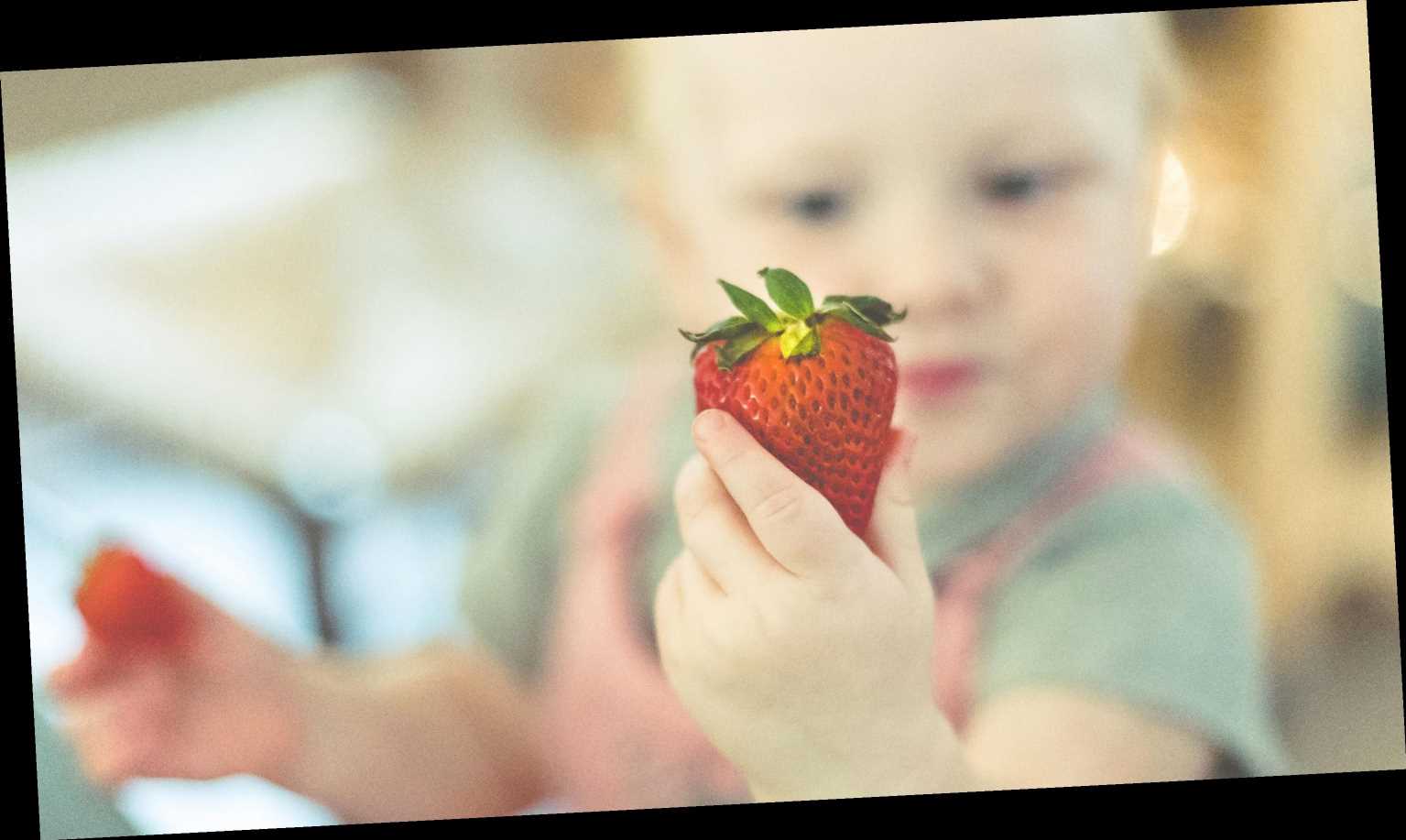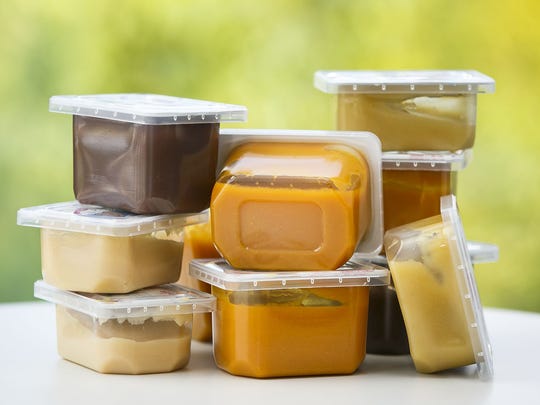A report released Thursday found that 95% of baby foods contain heavy metals. Here's what parents can do to reduce their children's consumption. (Photo: Lisa5201, Getty Images)
A report released Thursday found 95% of baby foods are contaminated with one or more toxic heavy metals.
The study conducted by the Healthy Babies Bright Futures organization tested 168 baby foods from 61 brands and nearly all of them contained some amount of lead, arsenic, mercury or cadmium.
It isn’t the first time a study has discovered this. A report released last year by Consumer Reports found the same metals in baby foods labeled “organic,” something parents didn’t expect out of those products.
Why are they finding metals in baby food?
The U.S. Food and Drug Administration’s website says that metals can’t be entirely eliminated from foods because these metals are found in the air, water and soil and then taken up by plants as they grow.
The FDA monitors these levels to try to reduce the risk, it reports, especially for infants and children, to whom it can be most harmful.
According to the press release from the most recent study, these toxins can impact the growth of babies’ brain, lower IQ and increase the chance of cancer as well as lifelong deficits in intelligence.
The FDA says that metals are found in food because these metals are found in the air, water and soil and then taken up by plants as they grow (Photo: Molly J. Smith, (Salem, Ore.) Statesman Journal)
What can parents do?
It may be impossible to completely eliminate all heavy metals from food. But Consumer Reports suggests steps parents can take to reduce heavy metals in the food they give their children.
“Making changes now will go a long way to protecting your children, regardless of any prior exposure,” James Dickerson, Consumer Reports’ chief scientific officer, previously told USA TODAY.
1. Limit the amount of infant rice cereal your child eats
Cereal is often a baby’s first solid food because it is easy to swallow and fortified with iron. But Consumer Reports notes concerns about levels of inorganic arsenic in the product. Consider choosing oatmeal or multigrain cereal instead.
2. Be picky about the types of rice your child eats
Brown rice had more inorganic arsenic than white rice of the same type. Rice cakes, cereal and pasta were also high in inorganic arsenic.
A better choice is white basmati rice from California, India and Pakistan. Sushi rice from the U.S. had an average of half as much inorganic arsenic as most other types.
3. Pick snacks low in heavy metals
Apples, unsweetened applesauce, avocados, bananas, beans, cheese, grapes, hard-boiled eggs, peaches, strawberries and yogurt are snacks that were found to be low in heavy metals.
4. Be wary of fruit juice
Past tests found inorganic arsenic and lead in many brands of apple and grape juices.
5. Go easy on the chocolate
Cocoa powder may contain cadmium and/or lead. Cocoa itself may have more than dark chocolate, and dark chocolate may have more than milk chocolate.
6. Pass on protein powders
These may contain arsenic, cadmium and lead, according to Consumer Reports tests. Whey and egg-based powders tended to have less than plant-based ones such as soy and hemp.
READ MORE
- Many baby foods contain lead, arsenic and mercury, report says
- A parents’ guide to cultural appropriation: an expert breaks down kids’ Halloween costumes
- Why put out a teal pumpkin and non-food treats? Moms with kids who depend on them explain
Source: Read Full Article


